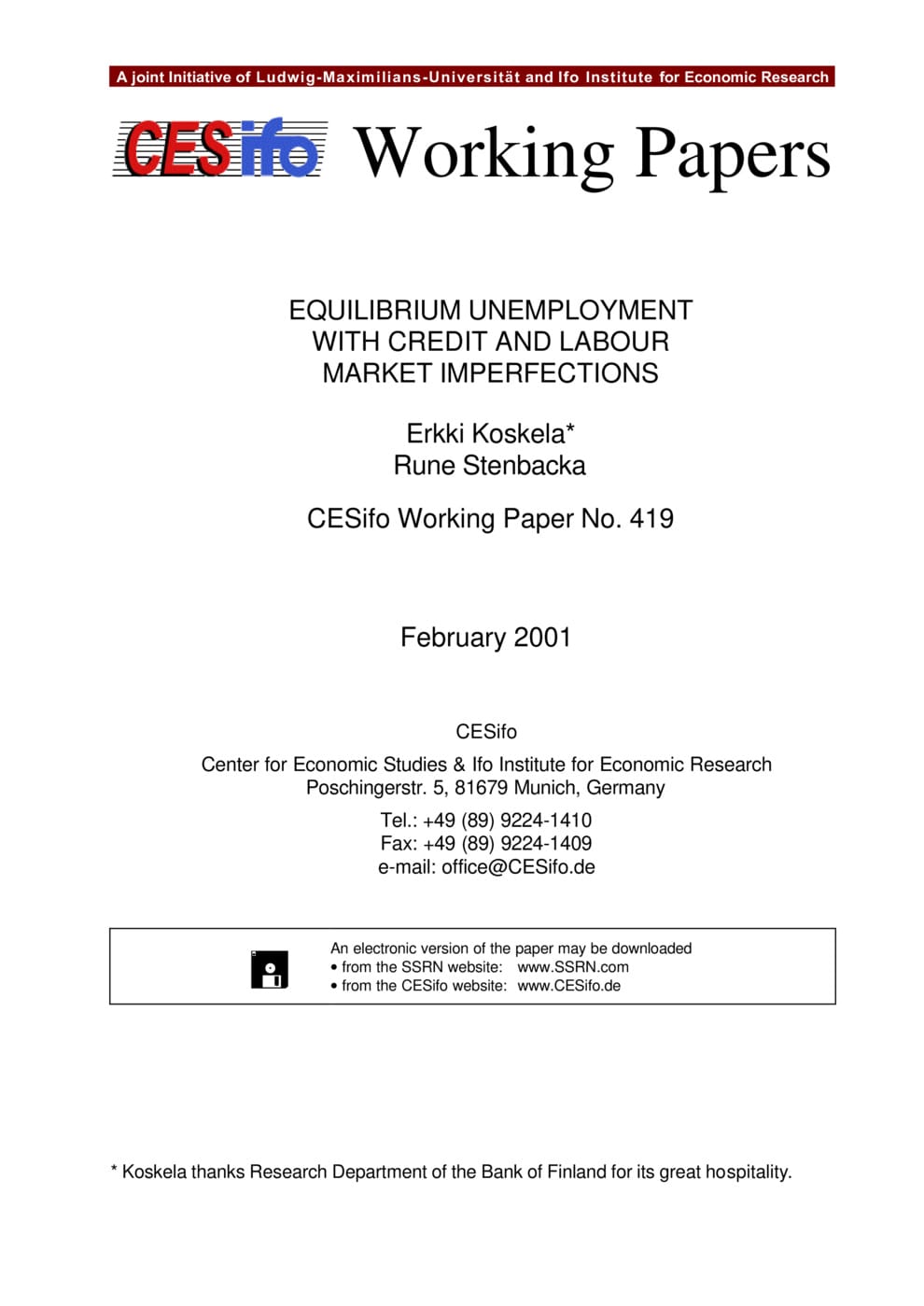Equilibrium Unemployment with Credit and Labour Market Imperfections
CESifo, Munich, 2001
CESifo Working Paper No. 419

We study the role of labour and credit market imperfections for the determination of equilibrium unemployment. In the credit market loan contracts are negotiated between financiers and firms, both possessing bargaining power, while the firms and organized labour bargain over the base wage. The sequential labour and credit market negotiations are assumed to take place conditional on the firm having committed itself to use performance-related profit sharing in addition to the negotiated base wage. It is shown that in the presence of profit sharing intensified credit market competition will raise equilibrium unemployment, because it induces wage-enhancing effects causing an increase in the outside option available to union members. Equilibrium unemployment is also an increasing function of firms' bankruptcy risks. It is, however, independent of the degree credit market imperfections if the compensation system is unrelated to firms' profits or if there is a monopoly union in the labour market.